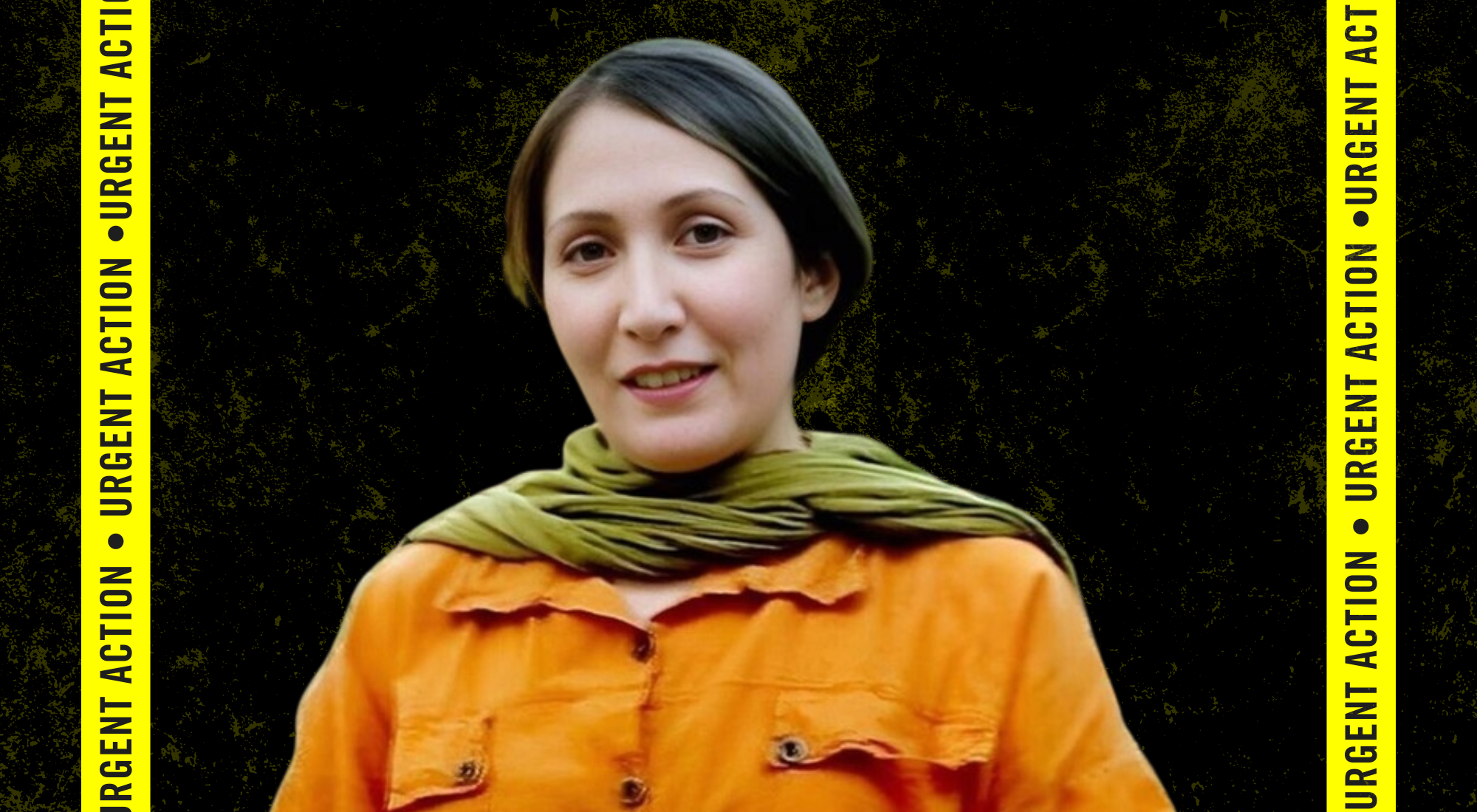Sharifeh Mohammadi, a human rights defender, is at risk of execution. A Revolutionary Court in Rasht, Gilan province, sentenced her to death in June 2024. This was solely for her peaceful human rights work. Sharifeh has long supported women’s and workers’ rights and campaigned for the abolition of the death penalty. Before 2011, she was a member of a workers’ committee in Iran, where independent trade unions are banned. Her trial was deeply unfair, and authorities never investigated her claims of torture and ill-treatment.
Here’s what you can do:
Write to the Head of Judiciary urging the government to:
- Halt any plans to execute Sharifeh Mohammadi, quash her conviction and death sentence, and release her immediately and unconditionally, as she is held solely for her peaceful human rights activism.
- Provide Sharifeh Mohammadi with adequate healthcare and ensure regular visits from family and lawyers while she remains in detention.
- Protect her from further torture and ill-treatment, and conduct an independent, effective, and impartial investigation into her allegations of torture.
- Ensure that anyone suspected of criminal responsibility for her torture is brought to justice in fair trials.
- Establish an official moratorium on executions with the aim of abolishing the death penalty.
Write to:
Head of judiciary,
Gholamhossein Mohseni Ejei,
c/o Embassy of Iran to the European Union
Avenue Franklin Roosevelt No. 15, 1050 Bruxelles, Belgium
Salutation: Dear Mr. Gholamhossein Mohseni Ejei,
Arbitrary arrest and detention
On December 5, 2023, agents arrested Sharifeh Mohammadi at her home in Rasht. They seized her electronic devices and personal belongings before taking her to a Ministry of Intelligence detention center. While detained, Mohammadi endured blindfolded interrogations without access to a lawyer.
She was denied contact with her family. The questioning focused on her human rights activism, including her opposition to the death penalty and support for political prisoners. After several days, she was moved to solitary confinement in Lakan Prison, where the interrogations continued.
On December 28, 2023, she was transferred to another detention center in Sanandaj, where she faced further torture. Agents repeatedly struck her face, attempting to force a confession linking her to the banned Komala Party of Kurdistan, which she denied.
In January 2024, she was placed in solitary confinement in Sanandaj Prison and filed a complaint about her treatment. However, no investigation was conducted, and authorities pressured her to withdraw the complaint. In late February 2024, she withdrew her complaint and was transferred back to Lakan Prison, where she remained in solitary confinement until March 2024.
Unfair trial and conviction
Sharifeh Mohammadi’s trial in Branch 1 of the Revolutionary Court of Rasht was marked by gross injustice. Her lawyer had only 10 minutes to present a defense. On June 30, 2024, the court issued its verdict, citing her peaceful human rights work as evidence of her alleged crimes.
The court claimed that her advocacy for the abolition of the death penalty, her documentation of women prisoners, and her possession of workers’ uprising information were evidence against her. The court also falsely linked her past involvement with a workers’ rights committee to the Komala Party of Kurdistan, a banned Kurdish opposition group.
Torture allegations and lack of investigation
Despite international human rights laws requiring investigations into allegations of torture, Iranian authorities have consistently failed to act. Mohammadi’s torture allegations were ignored, and no investigations were initiated, even though visible injuries were reported.
Instead, prosecution officials pressured her to withdraw her complaint. Amnesty International has documented how Iranian authorities routinely dismiss torture claims and take no action to protect survivors. When complaints are withdrawn, authorities falsely conclude that no crime occurred, further entrenching impunity.
Increased use of the death penalty
Since the “Woman Life Freedom” uprising, Iranian authorities have escalated their use of the death penalty. This includes politically motivated charges against women. In July 2024, Kurdish activist Pakhshan Azizi was sentenced to death on charges of “armed rebellion against the state” for her peaceful activism.
Other women, such as Wrisha Moradi and Nasim Gholami Simiyari, also faced similar charges. In 2023, Iran executed at least 853 people, with the Baluchi ethnic minority disproportionately affected. The Iranian government continues these executions in 2024, further targeting ethnic minorities and dissidents.
Please take action as soon as possible until December 9, 2024! The UA will be duly updated should there be the need for further action.
























